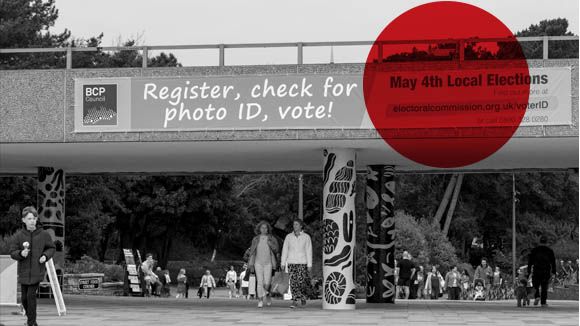I suspect that this Thursday’s local elections will go down, above all, as the “first photo ID elections”, and the big issue will be how much the new photo ID requirement suppresses voter turnout.
For new photo ID requirement is a straight Tory copy of Republican voter suppression techniques in the United States. Outside Northern Ireland, where it has long been required for good cause, there is no justification for it in the UK on the basis of virtually non-existent evidence of voter fraud.
The proof of the suppression intent is the government’s decision on the acceptable forms of ID beyond driving licences and passports. When the ID legislation was passing through the House of Lords, an amendment was carried to allow a wider array of photo and non-photo ID, including student, library and travel cards. The government reversed this amendment with its pliant majority in the Commons and the Lords then gave way under protest, leaving discretion to the government. And what further ID have ministers chosen to permit? A set of documents, such as over-60s travel cards, almost entirely restricted to seniors. Student cards are not allowed. Nor even are over-18 Oyster cards, whereas over-60 Oyster cards are allowed.
Voters without acceptable photo ID were allowed to apply for a special voter photo card in advance of the elections. But barely 3 per cent of the estimated two million adults without photo ID have done so.
Anyway, it is not just adults lacking acceptable photo ID who will lose out. Many others will turn up to vote inadvertently without their driving licences or passports and not bother making a return trip to the polling station after being told to retrieve them. Others will simply not bother to go to the polling station at all because they are not carrying the requisite ID, maybe because they normally vote on their way back from work and didn’t have the necessary identification with them.
Turnout in local and national elections in the UK was low even before this new photo ID requirement. It was only 34 per cent in last year’s local elections, and according to the Electoral Commission the most common reason given by people who didn’t vote was “lack of time / too busy / I was busy at work”, which accounted for 18 per cent of voters. The further inconvenience factor—as well as voters who simply lack any photo ID—could push turnout down sharply.
The Tories are expected to fare badly in Thursday’s elections. The seats up for grabs were last contested in May 2019, at the tail end of Theresa May’s disastrous government, but the Labour lead today is far greater.
Despite the Tory intent, a fall in turnout because of voter photo ID may not make much difference to the relative showing of the parties compared to what would have happened without the photo ID requirement. Labour’s loss of younger voters might plausibly be balanced by a Tory loss of poorer and more Brexity “red wall” voters who could lack passports and (to a lesser extent) driving licences.
However, almost irrespective of the party result, if turnout is sharply down a fierce row will ensue on the issue of gerrymandering, and this can only help Labour for the general election. Partly this is because of the negative perception of gerrymandering itself—but also, if turnout is down in the local elections, it will alert voters at large to the new photo ID requirement for the far more important general election next year.
If so, the Tories won’t just be disreputable but incompetent too, since they would have done better to delay introducing the photo ID requirement until the general election. But then, being both disreputable and incompetent is the trademark of the “Boris Johnson and successors” Tory government, so it is fitting that it should characterise the conduct of the elections which will very likely bring about its final demise.













